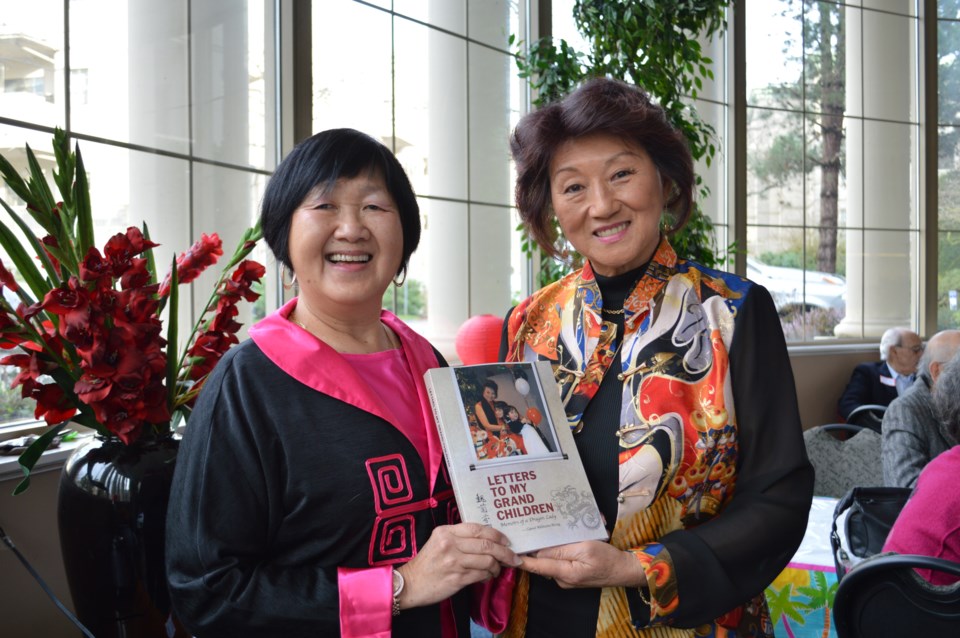Most people living in Richmond are immigrants — whether it’s they themselves who’ve flown in from a far-flung continent or it was their parents, grandparents or ancestors, as far back as their family tree permits.
Few, however, could claim to be as nomadic as the Chinese Hakka, an ancient culture, with roots scattered across the planet going back as early 661 B.C.
That very “clan,” as they call themselves, is alive and well here in Richmond.
Perhaps not in plain sight, but they are here, sprinkled among the very visible Chinese community, but with their own dialect and customs, some of which are even alien to larger, ethnic Cantonese and Mandarin Richmondites.
During a book launch in the city on the weekend, one particular Hakka culture — from Jamaica — emerged from the relative anonymity afforded by their higher-profile Chinese-Canadian cousins.
The launch of the book, Letters To My Grandchildren, about ethnic Hakka life in Jamaica and written by now Torontonian Carol Williams-Wong, magnetized local Hakka, including Richmond’s Carol Yap-Chung, a second generation Hakka Jamaican, who moved to Canada in 1974.
“There’s not really a discernable (Hakka) community in Richmond that I know of, we’re kind of in little pockets I think,” said Yap-Chung, a retired Air Canada customer service rep, who lives on General Currie Road at St. Alban’s and Garden City roads, and who has called Richmond home for more than 30 years.
“Which is funny really, because we can be found just about anywhere in the world, no matter where you go.”
Yap-Chung said it was “great fun” to get together with other Hakka at the launch, explaining that she’s good friends with the book’s author Williams-Wong, whom she met while living in Toronto, through the Tsung Tsin Hakka Association.
Also at the launch was Richmond businessman Daniel Wang, owner of Co-operators Insurance, who, although isn’t Jamaican Hakka, is very proud of his Mauritian Hakka roots.
“We are the nomads of China; who were always given the lower (tougher) land to work on, and it’s been ingrained in us that we were never really born to settle there,” said Wang.
“They were the first (Chinese) to leave and populate the world. My ancestors went to Mauritius, through the British, in the 1800s and were in plantations or working as shopkeepers. My grandfather was a shopkeeper.
“I, myself, went from Mauritius to England to Canada; I’m a kind of modern-day nomad.”
Explaining how Hakka Chinese differentiate from the better known ethnic Chinese groups, such as Cantonese and Mandarin, Wang cited the language, or “dialect,” some of which would be tough for anyone outside of his culture to follow. “If I spoke in (Hakka), a Cantonese person might not understand me,” he said.
“Plus, the food, we are known for lots of preserved veg and meats because we had to endure a lot of hardship and had to extract flavours out of things that few people would even think of.”
As far as the author herself is concerned, language — her English has a Jamaican accent — and the four tones of her native Hakka Chinese is what separates her ethnicity from others.



